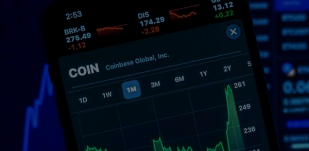How to Do Business in France
France is the UK’s 5th largest export market. The economy is well-developed and presents viable business potential in various sectors such as aerospace, automotive, energy, transport, agriculture and food.
This article will review the pros and cons of taking your business to the French market with a view to making an informed decision about whether to expand into France.

Business Culture in France
Building relationships is essential in French business culture. Consider learning the French language as a starting point for forging stronger relationships.
France’s business culture also places great emphasis on adhering to rules and regulations, therefore it’s important to:
- Maintain appropriate conduct to build mutual trust.
- Be punctual for meetings.
- Have clear deadlines and contract milestones.
- Keep a clear-cut distinction between work and personal life.
Business meetings typically begin and end with a brisk handshake, an appropriate greeting and the exchange of business cards. Meetings are characterised by formality and reserve and it's vital to refer to people by their correct titles.
Initial meetings are typically used to share information and open up discussions, so you may need several meetings to secure business. Patience will be an important attribute as decisions often take time to be arrived at.
Advantages of Doing Business in France
The pros of doing business in France include the following:
1. Efficient logistics and transport infrastructure
France has the largest road network and the second-largest high-speed railway network in Europe.
It also boasts extensive air transport networks including one of the busiest airports for passenger and cargo handling – the Roissy-Charles-de-Gaulle. There are over 8,500km of navigable waterways, including 2,000km of broad-gauge waterways.
In addition, France has the largest European coastline with seven major maritime ports. There are also several logistic zones housing a dense concentration of warehouses with areas of more than 5,000m2.
The efficient transport and logistics networks significantly reduce logistical business risk.
2. Favourable business environment
The French government has put in place statutory regulations to enable an environment conducive to business. For instance:
- Research tax credits (CIR), designed to encourage research and company development efforts by deducting the R&D expenses from your corporation tax burden.
- The Responsibility and Solidarity Pact and Competitiveness and Employment Tax Credit (CICE) to lower the cost of labour and reduce production costs.
This system allows for flexibility in labour and tax management with provisions for lower capital gains taxes and labour costs.
In addition, France has 120 tax conventions in place to avoid double taxation. The double taxation agreements prevent foreign businesses from being taxed twice on the same income.
If your suppliers pay you in euros, you can use an online payments platform to convert your currency into sterling, quickly and securely. Talk to one of the team at Clear Currency to find out more, or open an account with us today.
3. Sizeable market potential
France has a large potential consumer market underpinned by a population of over 65 million people. It is also the seventh world’s largest economy in terms of total GDP.
In addition, France is ranked highly on the OECD better life index. As reported by the OECD, the average household net-adjusted disposable income per capita is about $34,375 (USD) per annum compared to a European Union average of $30,490 per year.
Higher levels of disposable income have spurred rising consumer spending. In addition, the unemployment rate is relatively low and stable.
There is also substantial potential to profit from well-packaged, quality offerings, given the penchant for prestigious, high-quality luxury goods.
4. VAT rules
With a UK VAT registration, you may be able to zero-rate the goods you export to the French market. French VAT (Taxe sur la Valeur Ajoutée) rules are based on EU regulations with a standard tax rate of 20%. There are also additional 5-10% reductions available, depending on the type of business.
Imports into France are subject to French VAT at customs, which makes it easier to handle administratively. The service des impôts des Entreprises Etrangères and Direction régionale des finances publiques provide more guidance on VAT for foreign companies.
5. High-quality social services
France has the highest social spending worldwide. It’s a priority for the government to ensure the nationwide availability of good social security infrastructure.
Large-scale benefits, such as job training, health insurance, and unemployment protection, allow French citizens higher quality lifestyles.
Without the financial strain of social services such as childcare and education, their wages can accommodate spending on other goods and services, which is a boon for business.
Disadvantages of Doing Business in France.
Here are some of the challenges of doing business in France:
1. Language barriers
France is not a particularly multilingual society. While the official language of the EU is English, the French population primarily speak the French language in both personal and professional contexts.
Only 37% of the French population speak English, so you will need to learn some French. Also, all accounting should be done in French, so consider engaging translators and interpreters for your meetings and official communication.
2. Costly labour
Labour laws are skewed towards employee rights and protections. As a result, employment costs can run high due to the payroll corporate tax rates employers must pay.
In addition, the country has a good number of education and training initiatives in place. The result is a highly skilled workforce leading to higher base wages.
Companies in France are also required by law to provide a host of employment benefits, which comes at a cost.
3. Taxing administrative processes
Opening a bank account is mandatory in most cases and involves a lengthy and complicated process. The administrative anti-money laundering and anti-terrorism “know your customer” procedures are quite involving.
In addition, getting access to credit can be a mammoth task. On top of that, after Brexit, export procedures, including tariffs and border documentation, are now more demanding and time-consuming.
When doing business abroad it’s important to be aware of the risks involved when exchanging currency. It’s therefore advisable to get assistance from a currency specialist, like Clear Currency, with some of the products and tools you may need when navigating the complexities of foreign exchange risk.
4. Complex contract litigation processes
In France, you can’t easily terminate established business contracts. The French legal system moves to protect the party deemed weaker.
The courts may rule that the notice period provided by the contract when starting a business arrangement is too short, depending on the length of the business relationship. So, don’t assume that what’s stipulated in the contract you set up in France will hold in court.
The business partner company may be able to claim damages citing the sudden termination of the business relations.
5. Intellectual property
IP rights given in the UK will only protect you within the UK borders. So you will need to regularise your company registration for intellectual property rights in France. Get the information you need from L’Institut Nationale de Propriété Industrielle.
Use Clear Currency When Doing Business in France
Expanding your business outside of the UK’s borders can open up a whole new world of possibility and market potential. However, as there are inherent risks that come with receiving payments in a currency other than your own, it’s critical to find ways to mitigate these risks.
Start managing your international payments with ease - sign up for an account with Clear Currency today.
Related Articles
How to Mitigate Foreign Exchange Risk
Currency risk can have a significant effect on the efficiency and profitability of any international business. Each exchange rate movement affects how much you receive from sales and what you pay to suppliers.
Read more
Moving to Dubai from the UK: Checklist
You’re ready for a new life overseas and have decided you’re moving to Dubai. Now it’s time to consider the various costs involved, from your visa and accommodation, to health insurance, shipping your belongings and bringing your beloved pets along too.
Read more
Currency Outlook Quarter 1 2023
Clear Currency looks back at the performance of the US dollar, euro and sterling in Q4 2022, and assesses what might be in store for Q1 2023.
Read more


